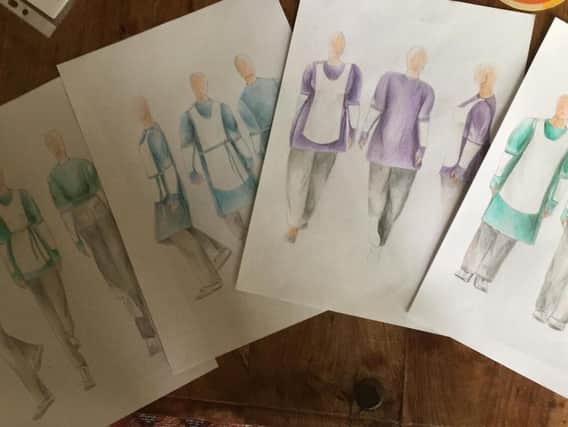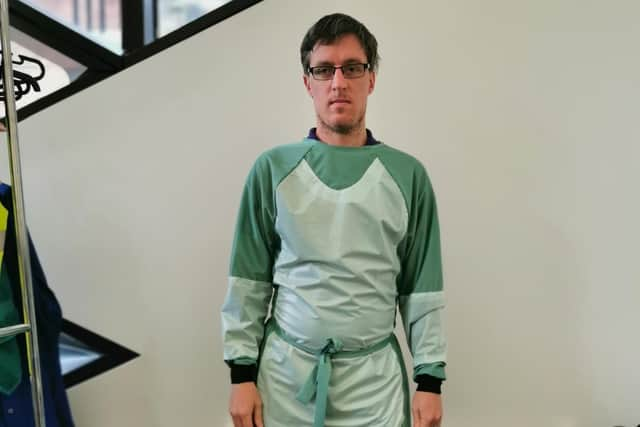University of Sheffield engineers play part in creating ‘gentler’ garments for health workers


“Gentle on those who care for others.”
That’s a sentiment that many have been keen to get behind over the last year as health workers toil on behalf of the nation.
It’s also the philosophy behind new garments – designed with engineers from the University of Sheffield – for carers and health workers that are intended to be more comfortable to wear, reusable, cheaper and better for the environment than single-use coveralls.


Advertisement
Hide AdAdvertisement
Hide AdCareSleeves, tunic-style garments developed by a team of medics, engineers, designers, manufacturers and public health specialists, are said to be more sustainable and comfortable alternative to single-use garments such as pinnies, plastic aprons, gowns and overalls.
Typically, carers, nurses, doctors and dentists are issued protective garments that are used once and then thrown away. These currently cost around £5 per garment. Plastic aprons, while less expensive, offer “considerably less protection and can be uncomfortable to wear”, particularly for people working long shifts, say the engineers.
The new garments, when used in a single patient interaction, can be washed up to 50 times and safely used again.
Research and development activities continue, with a view to achieving a textile that can be safely washed and re-worn 100 times.
Advertisement
Hide AdAdvertisement
Hide AdThe CareSleeves team has developed a range of gowns, tunics and smocks which are available in three lengths and three styles. The garments have been made with 100 per cent polyester by an innovative British company, Torola, who are using new technology to bond water-repellent coatings to fibres in a manner that reduces polluting waste.
The new garments use innovative textiles, milled in England, that “combine breathability with durability and recyclability”.
It is hoped they will be widely available by summer this year.
University of Sheffield engineers, led by Dr Pete Mylon from its Department of Multidisciplinary Engineering Education, have played a key role in the development and testing of prototypes.
Advertisement
Hide AdAdvertisement
Hide AdThis involvement allowed textile research and development to run in parallel with the garment design processes.
Dr Mylon says: “We can’t make it through the pandemic without the incredible efforts that our healthcare workers are showing, so at CareSleeves we’re trying to design garments that will help to make their working day that little bit easier and give them one less thing to worry about.
“Having worked with carers and hospital staff in Sheffield, producing PPE in our iForge makerspace, and seen the need for effective protection against Covid-19, I jumped at the opportunity to be part of a team inventing viable washable sleeved garments.”
The CareSleeves garments are currently being tested and the team behind the product are looking for people who work in care homes to trial it next. Dr Kate Hammer, innovation specialist and CareSleeves founder, says: “The Covid pandemic has brought huge challenges to carers, dentists, GPs and nurses in the UK, but one of the problems I feel they shouldn’t have to deal with is having to use garments that are uncomfortable to wear and can only be used once before having to be thrown away.
Advertisement
Hide AdAdvertisement
Hide Ad“My goals have been to create a garment range that is gentle on those who care for others and kind to the planet, whilst also delivering value for money and reinforcing that British-based companies can produce what people here need.”
To take part in the trial, people can contact the CareSleeves team by sending an email to [email protected].